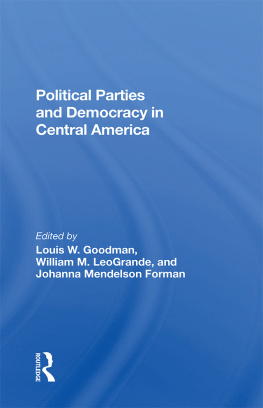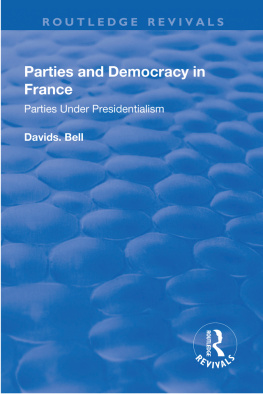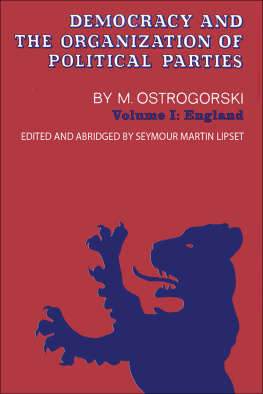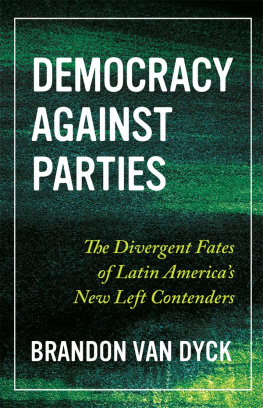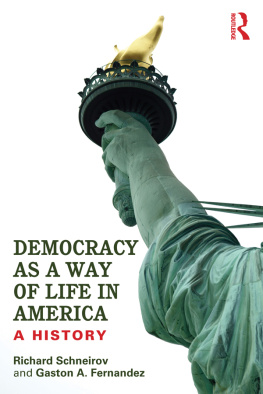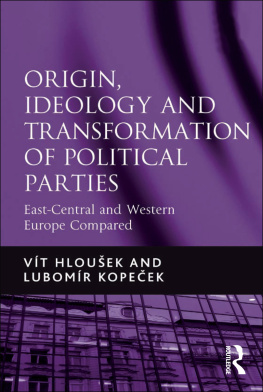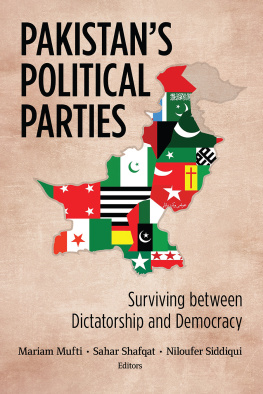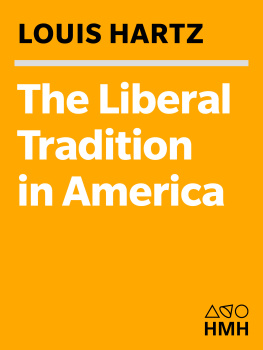Political Parties and Democracy in Central America
Political Parties and Democracy in Central America
Edited by
Louis W. Goodman ,
William M. LeoGrande ,
and Johanna Mendelson Forman
Cover photograph: Guatemala, 1990, courtesy of Bill Garrett
First published 1992 by Westview Press, Inc.
Published 2019 by Routledge
52 Vanderbilt Avenue, New York, NY 10017
2 Park Square, Milton Park, Abingdon, Oxon OX14 4RN
Routledge is an imprint of the Taylor & Francis Group, an informa business
Copyright 1992 by Louis W. Goodman, William M. LeoGrande, and Johanna Mendelson Forman
All rights reserved. No part of this book may be reprinted or reproduced or utilised in any form or by any electronic, mechanical, or other means, now known or hereafter invented, including photocopying and recording, or in any information storage or retrieval system, without permission in writing from the publishers.
Notice:
Product or corporate names may be trademarks or registered trademarks, and are used only for identification and explanation without intent to infringe.
Library of Congress Cataloging-in-Publication Data
Political parties and democracy in Central America / edited by Louis
W. Goodman, William M. LeoGrande, and Johanna Mendelson Forman.
p. cm.
Includes index.
ISBN 0-8133-8242-4. ISBN 0-8133-8243-2 (pbk.)
1. Political partiesCentral America. 2. Central America
Politics and government. I. Goodman, Louis Wolf. II. LeoGrande,
William M. III. Forman, Johanna Mendelson.
JL1419.A45P65 1992
324.2728dc20 92-21060
CIP
ISBN 13: 978-0-367-28348-3 (hbk)
On November 16, 1989, six Jesuit priests and two women at El Salvador's Central American University were murdered. Two of the slain Jesuits, Father Ignacio Ellacuria and Father Segundo Montes, participated in the conferences that led to the creation of this work. We dedicate this book to the memory of those slain in El Salvador and to the courageous work they performed in promoting a more just and equitable future for El Salvador and for the region.
Contents
, Louis W. Goodman
, Rodolfo Cerdas Cruz
, Morris J. Blachman and Kenneth E. Sharpe
, Richard L. Millett
, Jorge Mario Garcia Lagmrdia
, Hictor Rosada Granados
, Assad Shoman
, Cristina Eguizdbal
, Ernesto Paz Aguilar
, Virgilio Godoy Reyes
, William M. LeoGrande
, Josi Luis Vega Carballo
, David A. Smith
, Cynthia J. Arnson and Johanna Mendelson Forman
, William Goodfellow and James Morrell
, Wayne S, Smith
, Sergo Mikoyan
, Adolfo Aguilar Zinser
, Margaret E. Crahan
, Wolf Crabendorff
Guide
Fortunately, contemporary Central American politics has changed since this project began in 1987. This book is a result of a four-year effort to describe and analyze the evolution of political parties in Central America. Today democracy is accepted as the organizing principle of the region's political systems. No longer is the primary regional concern the role of external actors in internal political events. Central American political leaders are working together to resolve some of the most thorny regional problems, most salient among them the need to continue the consolidation of democratic politics, which remain at risk despite the gains of recent years.
In 1987, two great powers were at loggerheads in the battle to win the "hearts and minds" of the Nicaraguan people. A military strongman was terrorizing a broad coalition of civilian forces in Panama. A Costa Rican president was trying his own brand of shuttle diplomacy in an effort to peacefully resolve regional disorder. And a Salvadoran president was steadily losing the battle against a growing shift from the center to the right in public reaction to the ongoing civil war.
There was also hope. Guatemala in 1986 had held a fair election, and the first freely elected civilian president in over thirty years had renewed the struggle for political space. Belize also demonstrated new directions as a free state, with emerging political parties and the attendant problems of a postcolonial government all coming to bear on its fragile democratic system. Hondurans, torn by loyalties to support its military, also bore the brunt of hostilities as that nation served as a buffer for the international political struggle that raged next door in Nicaragua.
The American University joined forces with the Centro Interamericano de Asesora y Promocin Electoral (CAPEL), a Costa Rican organization concerned with electoral reform and training, and in 1987 scholarly teams began to explore political party development in Central America. A group of U.S., European, and Central American scholars began a journey of collaboration that started in Guatemala City and ended in Washington, D.C.
In June 1988 project scholars met in the capital of Guatemala to review early drafts of papers that would form the core of the chapters in this volume. Because of the subject matter of the project, scholars were enlisted to suggest political leaders who would comment on their work and attend an international forum on political party development. That forum, a Washington conference of Central American political leaders, took place in April 1989. The event was unique because it brought together scholars with key politicians of the region. The April 1989 conference brought together Sandinista officials with party leaders of what eventually became known as the UNO coalition in Nicaragua. It brought to Washington the renowned Jesuit Father Ignacio Ellacuria, who spoke eloquently about the efforts to promote a dialogue with the FMLN guerrillas. We will all miss the compassion and skill at mediation he brought to his work before his untimely death in 1989. Also among the conference participants were political leaders from Belize, Costa Rica, Honduras, and Guatemala. Panama was represented only by a spokesperson for the Noriega regime; that government enjoined the participation of any opposition leader. Reflecting on the proceedings of that conference, it is now clear that many signals of recent events were already evident.
After the conference others entered the dialogue, so that by 1990 we had commissioned essays not only from the core group of participants but also from scholars in the Soviet Union and Mexico. Many of the essays reflect recent events that have affected political party development in the region.
Although the conference in Washington marked an important point in the public dialogue about political issues that affect party development in Central America, the publication of a volume that explores the evolution of political parties in the region affords a wider forum for examining the roots of Central American civic culture. The process of commissioning, editing, and revising these essays has brought us into close contact with a special group of scholars and Central American leaders and has created a vital network that endures with the publication of this book.
No project is possible with the work of editors and authors alone. This book is the product of a team based in the Democracy Projects at The American University. The initial translation and organization of this book was carried out by Michael Gold, associate director of the Democracy Projects. Staff associate Maria Gil Montero and staff assistant Tricia Juhn played key roles in the early days of the project. Steven Pierce served as rapporteur and translator and assisted in the preparation of essays for this volume. Elizabeth Arias facilitated the publication of this book. Patricia Loo assisted throughout this project; without her help many parts of this work would be incomplete. Maria Dvila assisted in the final editing. Her painstaking work with the final manuscript and her ability to check original Spanish text against the English translation are reflected in the text and documents in this volume. Ana Centeno, James McDonald, Graciela Canedo, Betty Sitka, and Cathy Kreyche also provided important assistance.


